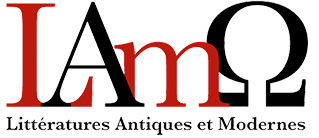In a context where Louis XIV had installed a cultural policy based on centralisation and monopoly – only the Royal Academy of Music could stage operas and produce shows with music and dance, only the Comédie-Française could perform tragedies and comedies in French – two other types of theatre managed to endure and even thrive for over a century, all the while staying outside of the system of privileges. These were the Comédie-Italienne and the Fairground plays (the latter were staged over two months during the large commercial gatherings that were the Saint-Germain fair in wintertime and the Saint-Laurent fair in the summer). Incurring the envy of the two official theatres, they survived major crises, unending lawsuits, expulsions, and destructions. Yet, for many years, literary history has set little store by these two forms of theatre, and instead celebrates the classical authors of the Comédie-Française – including Voltaire and Beaumarchais – while minimising the major influence the Comédie-Italienne had over Marivaux (and forgetting also that Molière would perform at the Hôtel de Bourgogne on alternate date to the Italian actors); as for the Fairground plays, they have never been widely studied up until today. Despite this oversight, they are a core part of the French dramatic heritage; they demonstrated extraordinary inventiveness when faced with constraints, thus creating new dramatic forms (plays with written signs, monologues with several actors, pantomimes, opéra-comique, etc.) and influencing theatre over the following centuries (from the operetta to karaoke). These Fairground theatres, as well as a whole facet of the Comédie-Italienne, have been widely understudied due to political and ideological reasons (they have often been accused of subversion), but also due to material problems (source archives are often handwritten and rarely grouped together, music has been lost, hundreds of plays remain unpublished, etc.). Our project is based firstly on a mass of source texts that, up until now, have never been studied or published (almost 30 000 pages of registers, notarial deeds, minutes of proceedings, unpublished scripts for comedies and opéra-comiques). We are studying these two marginalized forms of theatre – the Comédie-Italienne and the Fairground plays – together for the first time, firstly so as to analyse the acculturation and institutionalization of the Italian troops (in 1762 the Opéra-Comique, which performed at the fairs, merged with the Comédie-Italienne; in 1779 the Royal Academy of Music yielded the Opéra-Comique’s privilege to the Théâtre-Italien for a thirty year period), and secondly to investigate how both forms of theatre generated artistic innovations under constraint in order to survive. To tackle the huge scale of these archives, CIRESFI has chosen to take up a technological challenge by working both with specialists of the theatre and with prominent researchers in communication sciences; our aim is to create our own handwriting recognition software, which will enable us to convert the thousands of pages of archives into a vast, interactive database. The final objective is to link together all the elements and events involving Fairground theatre and the Comédie-Italienne, including the cost of productions (registers), the props, the actors, the social make-up of the audiences, the tunes (we are searching for music scores and for instruments used in the orchestras), the dance choreographies (need to rediscover the different forms of dance), the written plays (need to decipher and study the manuscripts and analyse the censors’ annotations). This ambitious program will shed new light on emerging forms of creation and on the changing economy of performing arts; it focuses as much on aesthetic as on social issues. This material and hermeneutic challenge will shed light on a new facet of the Enlightenment’s dramatic heritage, and transform the traditional academic portrayal of this period.

Projet ANR - Françoise Rubellin, dir. (2015-2018)
CIRESFI (Constraints and Integration. For the Reappraisal of Fairground Plays and the Comédie-Italienne))
2015-2019
by , , ,
Tweet

Françoise Rubellin
Professeur de Littérature française (XVIIIe siècle)
Théâtre du XVIIIe siècle : Marivaux, théâtres de la Foire, Comédie-Italienne, opéra-comique, marionnettes, pratiques parodiques, relations théâtre et musique, édition de manuscrits, hiérarchies culturelles, humanités numériques
View online : CETHEFI
Courrier électronique : Françoise Rubellin

Anna Mirabella
Maître de Conférences en langue, littérature et civilisation italiennes
Théâtre et histoire dans l’Europe moderne et contemporaine, genre et histoire sociale en Italie
Courrier électronique : Anna Mirabella

Isabelle Ligier-Degauque
Maître de conférences en arts du spectacle à l’Université de Nantes
Théâtre du XVIIIe siècle, Parodies dramatiques des tragédies et d’opéras, Comédie-Italienne et Théâtres de la Foire, Tragédies de Voltaire
View online : Cetephi
Courrier électronique : Isabelle Ligier-Degauque

Walter Zidarič
Professeur en Littérature et Civilisation italiennes
Littérature, civilisation, opéra italiens et russes (19e-21e)
Courrier électronique : Walter Zidarič

















